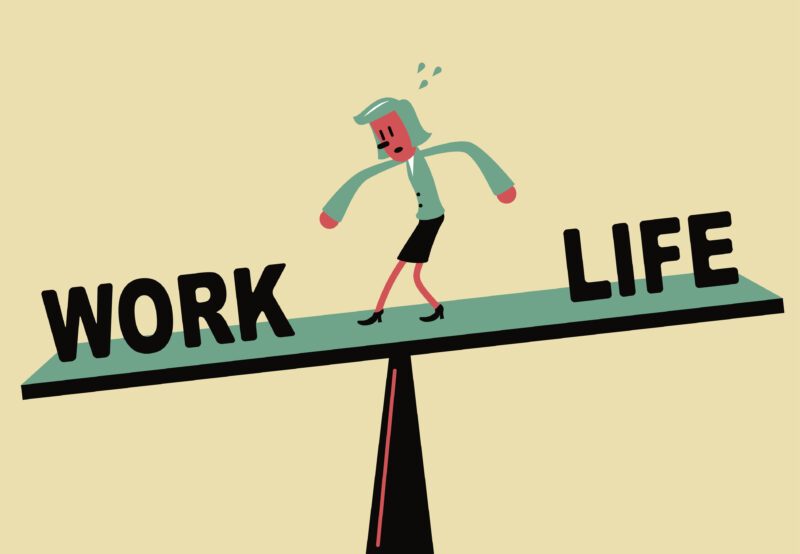Did you know that job burnout affects a staggering number of individuals, leading them to question their desire to work? According to a recent study, nearly 50% of professionals in the United States have experienced symptoms of burnout at some point in their careers.
Job burnout is a type of stress that can have a profound impact on both physical and mental health. It is characterized by feelings of exhaustion, emptiness, and powerlessness, and can make individuals reluctant to continue working.
There are several factors that can contribute to burnout, including lack of control over one’s work, unclear expectations, conflicts with colleagues, excessive workload, and work-life imbalance. These challenges, combined with the chronic stress they create, can lead to burnout and a loss of motivation to work.
If you are currently experiencing these emotions and questioning your desire to work, it’s essential to recognize the signs of burnout and take proactive steps to manage and prevent it. By understanding the causes of burnout and implementing effective coping strategies, you can regain your sense of purpose and find joy in your professional life once again.
Key Takeaways:
- Job burnout affects nearly 50% of professionals in the United States.
- Burnout can lead to feelings of exhaustion, emptiness, and powerlessness, causing individuals to question their desire to work.
- Lack of control, unclear expectations, conflicts with colleagues, excessive workload, and work-life imbalance are common causes of burnout.
- Recognizing the signs of burnout and implementing effective coping strategies can help manage and prevent burnout.
- By taking proactive steps, you can regain your sense of purpose and find joy in your professional life once again.
Causes of Job Burnout

Job burnout can be attributed to several factors that contribute to feelings of exhaustion and dissatisfaction in the workplace. Understanding these causes can help individuals and organizations address and prevent burnout effectively.
Lack of Control
One of the main causes of job burnout is the lack of control over one’s work. When individuals feel powerless and are unable to make decisions or have autonomy in their roles, it can lead to feelings of frustration and helplessness.
Unclear Expectations
Unclear expectations can also contribute to burnout. When individuals are unsure about what is expected of them or what their responsibilities entail, they may feel overwhelmed and struggle to meet these ambiguous expectations.
Conflicts with Colleagues or Superiors

Conflicts with colleagues or superiors can create a toxic work environment and contribute to burnout. Constant disagreements, lack of support, and difficult relationships can lead to increased stress levels and a negative impact on overall job satisfaction.
Excessive Workload
An excessive workload is a common cause of burnout. When individuals are consistently faced with an overwhelming amount of work and unrealistic deadlines, it can lead to chronic stress and a sense of being overwhelmed.
Lack of Support
A lack of support from colleagues, supervisors, or the organization itself can exacerbate burnout. When individuals feel isolated and unsupported in their roles, it can further contribute to feelings of exhaustion and dissatisfaction.
Work-Life Imbalance

Work-life imbalance is a significant factor that contributes to burnout. When individuals do not have a healthy balance between their work and personal lives, it can lead to chronic stress and a feeling of being constantly overwhelmed.
To visualize the causes of job burnout, refer to the table below:
| Cause | Description |
|---|---|
| Lack of Control | Individuals feel powerless and unable to make decisions or have autonomy in their work. |
| Unclear Expectations | Individuals are unsure about what is expected of them or their responsibilities. |
| Conflicts with Colleagues or Superiors | Constant disagreements, lack of support, and difficult relationships in the workplace. |
| Excessive Workload | Individuals face an overwhelming amount of work and unrealistic deadlines. |
| Lack of Support | Individuals feel isolated and unsupported in their roles. |
| Work-Life Imbalance | A lack of balance between work and personal life. |
Understanding the causes of job burnout is crucial for both individuals and organizations. By addressing these factors and creating a supportive work environment, it is possible to mitigate burnout and promote overall well-being and satisfaction in the workplace.
Recognizing the Signs of Burnout
Burnout can have a profound impact on individuals’ well-being and productivity. It is important to be aware of the signs and symptoms of job burnout to address it effectively. The signs of burnout can manifest in various ways:
- Emotional Exhaustion: People experiencing burnout may feel completely drained, both physically and emotionally.
- Cynicism: Burnout can lead to negative and cynical attitudes towards work and colleagues.
- Reduced Efficacy: Individuals may struggle to meet their professional and personal responsibilities, feeling as though their efforts are ineffective or meaningless.
In addition to these mental and emotional signs, burnout can also manifest physically. Common symptoms include:
- Headaches
- Gastrointestinal issues
- Sleep disturbances
Recognizing these signs is crucial in preventing further burnout. If you or someone you know is experiencing these symptoms, it is crucial to seek support and make necessary changes in order to prioritize well-being.
Being able to identify the signs of burnout enables individuals to take appropriate action and prevent the situation from worsening. By addressing burnout early on, individuals can prioritize their mental, emotional, and physical health, leading to greater satisfaction and success in work and personal life.
Strategies for Coping with and Preventing Burnout

Coping with burnout requires proactive measures to manage and reduce stress levels. Individuals can start by setting clear boundaries and establishing a healthy work-life balance. By defining specific times for work and personal activities, it becomes easier to prevent work-related stress from encroaching on personal time and vice versa.
Prioritizing self-care activities is also crucial in coping with burnout. Taking time for activities like exercise, meditation, or hobbies can help recharge and rejuvenate the mind and body.
Seeking support is another effective strategy for coping with burnout. Friends, family, or professionals can offer valuable perspectives, guidance, and a listening ear. Sometimes, just discussing challenges and concerns with a trusted individual can bring relief and renewed motivation. Making meaningful changes in one’s work life can also be beneficial.
This could involve reevaluating priorities, delegating tasks, or exploring new career opportunities that align better with personal values and goals.
Preventing burnout requires a proactive approach as well. Enhancing work-life balance is essential. This can be achieved by establishing clear boundaries between work and personal life, recognizing the importance of leisure time, and setting realistic expectations. Advocating for oneself within the workplace is also critical.
Communicating needs and concerns to supervisors and colleagues fosters a supportive work environment and helps address potential stressors before they escalate. Additionally, creating a supportive work environment by promoting open communication, teamwork, and employee well-being can significantly contribute to preventing job burnout.
FAQ

What is job burnout and why might someone not want to work anymore?
Job burnout is a type of stress linked to work that can lead to feelings of exhaustion, emptiness, and powerlessness. Factors such as lack of control, unclear expectations, conflicts with others, and work-life imbalance can contribute to job burnout, causing individuals to no longer want to work.
What are the causes of job burnout?
Job burnout can be caused by various factors, including lack of control over one’s work, unclear expectations, conflicts with colleagues or superiors, excessive workload, lack of support, and work-life imbalance. These factors can lead to chronic stress and a sense of being overwhelmed, which can contribute to burnout.
How can I recognize the signs of burnout?
The signs of burnout can manifest in various ways, including emotional exhaustion, cynicism, and reduced efficacy. People experiencing burnout may feel completely drained, have negative and cynical attitudes towards work and colleagues, and struggle to meet their professional and personal responsibilities. Physical symptoms such as headaches, gastrointestinal issues, and sleep disturbances may also occur.
What strategies can I use to cope with and prevent burnout?
Coping with burnout involves taking proactive steps to manage and reduce stress. This can include setting boundaries, prioritizing self-care activities, seeking support from friends, family, or professionals, and making meaningful changes in one’s work life. Strategies for preventing burnout include improving work-life balance, clarifying expectations, advocating for oneself, and creating a supportive work environment.
